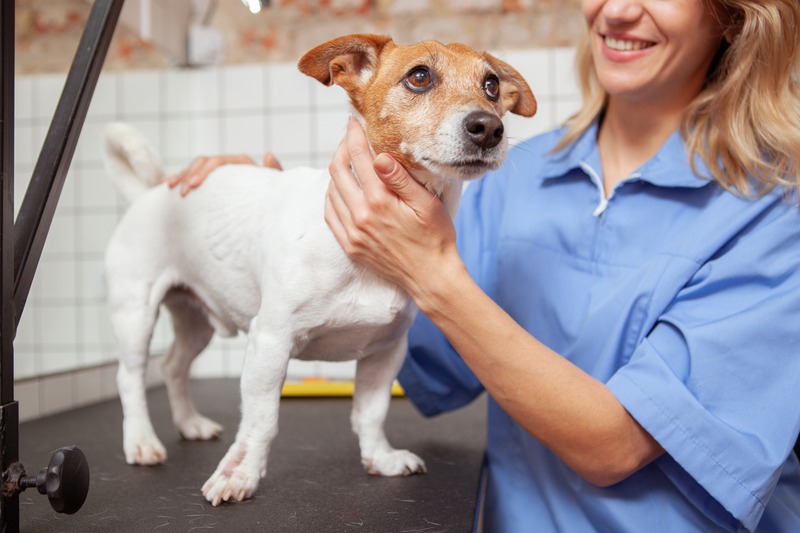When our furry friends go through surgery, no matter how old they are, it becomes our responsibility to provide them with the best post-op care to ensure a swift and full recovery. Young pets, such as kittens and puppies, may need a little more attention and care due to their age and developing systems. It’s much like taking care of a little kid who doesn’t understand why they suddenly feel different and, perhaps, a bit under the weather. If you’re curious about how to help your little one best after they come home from surgery, you’re in the right place.
Key Steps in Post-Op Care for Young Pets
Regaining strength and health after an operation involves several critical steps. Each one plays a crucial role in helping your pet heal without complications. So, let’s zoom in on the essentials of post-op care that will help your young pet bounce back.
1. Understanding Your Pet’s Specific Needs
First, it’s essential to understand the specific instructions given by your vet. Every procedure is different, and so are the recovery instructions. Your vet will provide detailed guidance tailored to the surgery performed—adhere closely to this advice. It’s your roadmap to a successful recovery.
2. Creating a Comfortable Resting Space
A cozy and quiet place is key for healing. Your pet needs a spot free from the hustle and bustle, away from other animals and children. A special bed with extra blankets or pillows surrounding it will make them feel secure and help them rest better.
3. Managing Your Pet’s Pain
Just like humans, animals feel pain after surgery. Your vet will prescribe pain relief medication to keep your little companion comfortable. It’s important to stick to the dosage and schedule to prevent unnecessary discomfort.
4. Monitoring for Side-Effects
While on medication, watch for any possible side effects. If something doesn’t seem right, don’t hesitate to contact your vet. They are there to help you navigate these concerns.
5. Helping Them Stay Hydrated and Nourished
Proper nutrition and hydration are pillars of recovery. Initially, your pet might not have a big appetite, but they must get enough fluids and food. Offer small amounts of water and food, and encourage them when they show interest.
6. Keeping Activity Levels in Check
Too much activity can hinder the healing process. Depending on the surgery, your vet may recommend restricting your pet’s movement. This might mean no running, jumping, or rough play for a while.
7. Use of Recovery Aids
If your pet has had leg or hip surgery, it might need special aids like harnesses or slings to move around without stressing the healing parts. Follow your vet’s instructions on using these tools.
8. Ensuring Proper Wound Care
Keeping the surgical area clean and dry is crucial. Regularly check for signs of infection, such as redness, swelling, or discharge. If your pet is trying to lick or chew the incision site, an Elizabethan collar might be necessary to prevent this.
9. potting Complications Early
Kittens and puppies don’t always understand that they need to heal. They might be more prone to messing with their stitches or bandages. Knowing the signs of complications will enable you to act quickly if something seems amiss.
10. Scheduled Vet Checkups and Follow-Ups
Scheduled checkups post-surgery allow the vet to monitor your pet’s healing progress. Be sure to keep these appointments to ensure any developing issue is caught and treated early.
For expert assistance during your pet’s recovery process, a visit to Caring Hands Veterinary Hospital can provide the extra support you might need. Their team of professionals understands what young pets need and will offer the right advice and services to ensure your pet’s recovery is on track.
The Importance of Rest for Healing
Since young pets are often full of energy, it’s essential to enforce rest so that they can heal. Sometimes, this means separating them from other pets or using a crate for short periods to avoid overexcitement and ensure they get the rest they need.
What to Watch Out For During Recovery
While your young pet is healing, there are a few red flags that call for immediate attention:
-
Excessive lethargy or any drastic change in behavior
-
Refusal to eat or drink for extended periods
-
Signs of pain like whimpering, howling, or constant hiding
-
Swelling, redness, or pus at the surgery site
-
Coughing, vomiting, or diarrhea
-
Difficulty breathing or unusual breathing patterns
Staying alert to these signs and contacting your kitten and puppy vet quickly can make all the difference in your pet’s recovery.
Emotional Support is Also a Critical
Remember to underestimate the power of emotional support. Offer lots of gentle affection and reassurance. Your presence can be very soothing, especially when they’re feeling vulnerable during recovery.
Simplifying Post-Op Care for Your Furry Family Member
It’s not just about following a list of instructions; it’s about creating an environment that fosters healing and shows your pet that they’re loved and cared for. Simplifying the process for them and for you can be achieved by:
-
Organizing medication and supplies beforehand
-
Keeping close during the initial days post-op for regular checks and comfort
-
Gently encouraging movement and activity as recommended by your vet
-
Using pet gates or crates as needed to control the environment
Remember, successfully managing your young pet’s after vet surgery care involves not only tending to their physical needs but also offering the emotional support that helps them understand they’re not alone in this. Patience and tenderness go a long way, and before you know it, your energetic ball of fur will be back to its normal self, thanks to your devoted care.
Final Thoughts
Recovering from vet surgery requires careful management, but doing so can be gratifying. Ensure you’re equipped with proper knowledge, tools, and support to aid your pet. Adhering to the veterinarian’s advice and providing love and attention are key to a successful recovery. Remember that post-op care varies, so consult your vet whenever necessary. With dedication and a positive mindset, you’ll help your pet heal and enjoy a flourishing future together.



